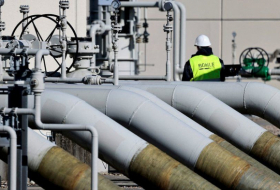MPs narrowly voted against the move, even though Mr Pashinyan is the only candidate for the post.
Addressing parliament moments before the vote, he told his supporters he would join them in the centre of the capital Yerevan to resume protests.
Mr Pashinyan has led weeks of anti-government protests that forced former PM Serzh Sargsyan to resign.
He had earlier warned MPs of a "political tsunami" if they did not back him.
Armenia's ruling Republican Party had said it would not put up a candidate, in a bid to ease tensions.
But the protest leader warned there were moves aimed at halting his bid and he urged protesters to stay on the streets to prevent the Republican Party from "stealing the people's victory".
In his address to MPs, Mr Pashinyan accused the Republicans of declaring "war on the Armenian people" when it became clear they would not support him.
He received 45 votes but needed 53 to secure a majority in the 105-seat chamber.
Mr Sargsyan, who had served 10 years as president, stepped down last month days after being sworn in as PM. He had been accused of trying to cling to power.
All 47 opposition members of parliament had pledged to vote for Mr Pashinyan, but he needed votes from six Republican Party deputies to win the majority he needs in the 105-seat house. The Republican Party has dominated Armenian politics since 1999.
Mr Pashinyan, who has said he will rid Armenia of corruption, poverty and nepotism, called on his supporters to rally as parliament convened.
In an overnight video address on Facebook he warned supporters that the former president was asking his party to obstruct his election.
The protest leader asked people to meet at Republic Square in the capital, Yerevan, to celebrate what he called "the public victory over hopelessness, emigration and uncertainty". An estimated 20,000 people gathered as the protest leader addressed parliament.
Mr Pashinyan, 42, has said he wants to call snap elections.
"Take this step," he urged MPs, "and you will serve the homeland and the people, helping them to exit this 10-year internal political crisis, helping them to finally eradicate hopelessness from Armenia."
What has happened in Armenia?
Demonstrators poured on to the streets of Yerevan last month in protest at Serzh Sargsyan's move from the presidency to the post of prime minister.
In 2015, Armenians voted in a referendum marred by irregularities to shift their country from a presidential to a parliamentary system, stripping the presidency of its powers and giving them to the prime minister. Mr Sargsyan had initially vowed he would not seek to stay in power.
The protests surged on 17 April when he was elected prime minister by parliament within days of leaving the presidency.
Mr Pashinyan then met his rival for talks, which broke down within minutes when he called for the prime minister's resignation and Mr Sargsyan accused protesters of blackmail.
Mr Pashinyan and some 200 protesters were then arrested.
However, Mr Pashinyan was soon released and the prime minister resigned, admitting he had "got it wrong".
Who is Nikol Pashinyan?
The man with the trademark khaki T-shirt behind Armenia's protests is a former newspaper editor who has spent time in jail for his opposition to the leadership of Serzh Sargsyan.
The son of a sports teacher, Mr Pashinyan came to prominence in 1995 when he began writing about government corruption. He founded a newspaper three years later and went on to take the role of editor at a best-selling daily, which criticised the government of President Robert Kocharyan and then of President Sargsyan.
When Mr Sargsyan was elected president in 2008, Mr Pashinyan was among the leaders of protests that turned violent and left 10 people dead. At that point he went into hiding, surrendering to authorities the following year.
Jailed the following year on charges of murder and organising mass unrest, he was eventually released under an amnesty in 2011.
In 2012 he was first elected to Armenia's parliament. He argues that only he can steer Armenia to free and fair elections.
More about: Armenia















































